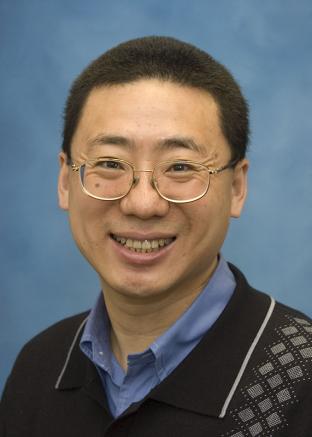Biography
Education and Training
1994: M.D., Clinical Medicine, Tianjin Medical University, Tianjin, P.R.China
1998: M.M.Sc. in Neurosurgery, Tianjin Medical University, Tianjin, P.R.China
2002: Ph.D. in Cellular and Molecular Biology, University of Navarra, Pamplona, Spain
2002 - 2008: Post-doctoral Research Fellow, Department of Pathology, Johns Hopkins University School of Medicine, Baltimore, MD
Academic Appointments
2008 – 2014: Assistant Professor, Department of Neurosurgery, University of Michigan Medical School, Ann Arbor, MI
2008 – 2014: Assistant Professor, Department of Cell and Developmental Biology, University of Michigan Medical School, Ann Arbor, MI
2014 – Present: Associate Professor, Department of Neurosurgery, University of Michigan Medical School, Ann Arbor, MI
2014 – Present: Associate Professor, Department of Cell and Developmental Biology, University of Michigan Medical School, Ann Arbor, MI
Research Interests
Develop Novel Therapies for the Malignant Brain Tumors Based on Depletion of Cancer Stem-like Cells Medulloblastoma (MB) and glioblastoma (GBM) are the most common malignant brain tumors in children and adults, respectively. There is accumulated evidence showing that a small population of cancer stem cells (CSCs) within cancers is responsible for tumor propagation, including MB and GBM. The CSC hypothesis challenges traditional therapeutic concepts, suggesting that only by removing CSCs within a tumor can the cancer be cured. Our goal is to develop novel therapies for the malignant brain tumors MB and GBM based on the depletion of CSCs. It has been shown that the Notch singling pathway regulates normal stem cells in the central nervous system (CNS), and that MB and GBM contain CSCs with higher Notch activity. We have demonstrated recently that Notch pathway inhibition depletes CSCs and blocks engraftment of MB and GBM cells. This work represents a strong demonstration of a chemotherapeutic agent that can target CSCs in solid tumors. Our current projects include exploring the translational therapeutic application of Notch pathway blockade into clinic, identifying the mechanism by which Notch, SHH, and Wnt signaling pathways and microRNAs that regulate these brain CSCs, and investigating the interaction between CSCs and their niche.

